Here are some popular “types” of content marketing:
- Blogs
- Videos
- Podcasts
- Emails
- Infographics
- Webinars
- Case studies
- presentations
- eBooks
- White papers
- references
- Foil decks
- quiz
- tool
You can find these on pretty much every list of content marketing types that comes up on Google. But the truth is that none these are types of content marketing. These are types of content … which are not the same!
In this guide, I’m going to explain why this is so and introduce some real types of content marketing you can use.
But let’s start by making our definitions clear.
What is content marketing?
Content marketing is the process of creating and distributing content in order to acquire and retain customers.
You can use any type of content for this. But it’s not content marketing unless the content promotes your business and is paired with a sales strategy.
Types of content marketing
Let’s go over some types of content marketing to see how they work in real life.
Blogging for SEO
Blog posts are a popular type of content. Many companies publish them regularly. However, most of the posts don’t get any traffic. Even when advertised on social media, they usually get a peak at the beginning but don’t fade to anything later.
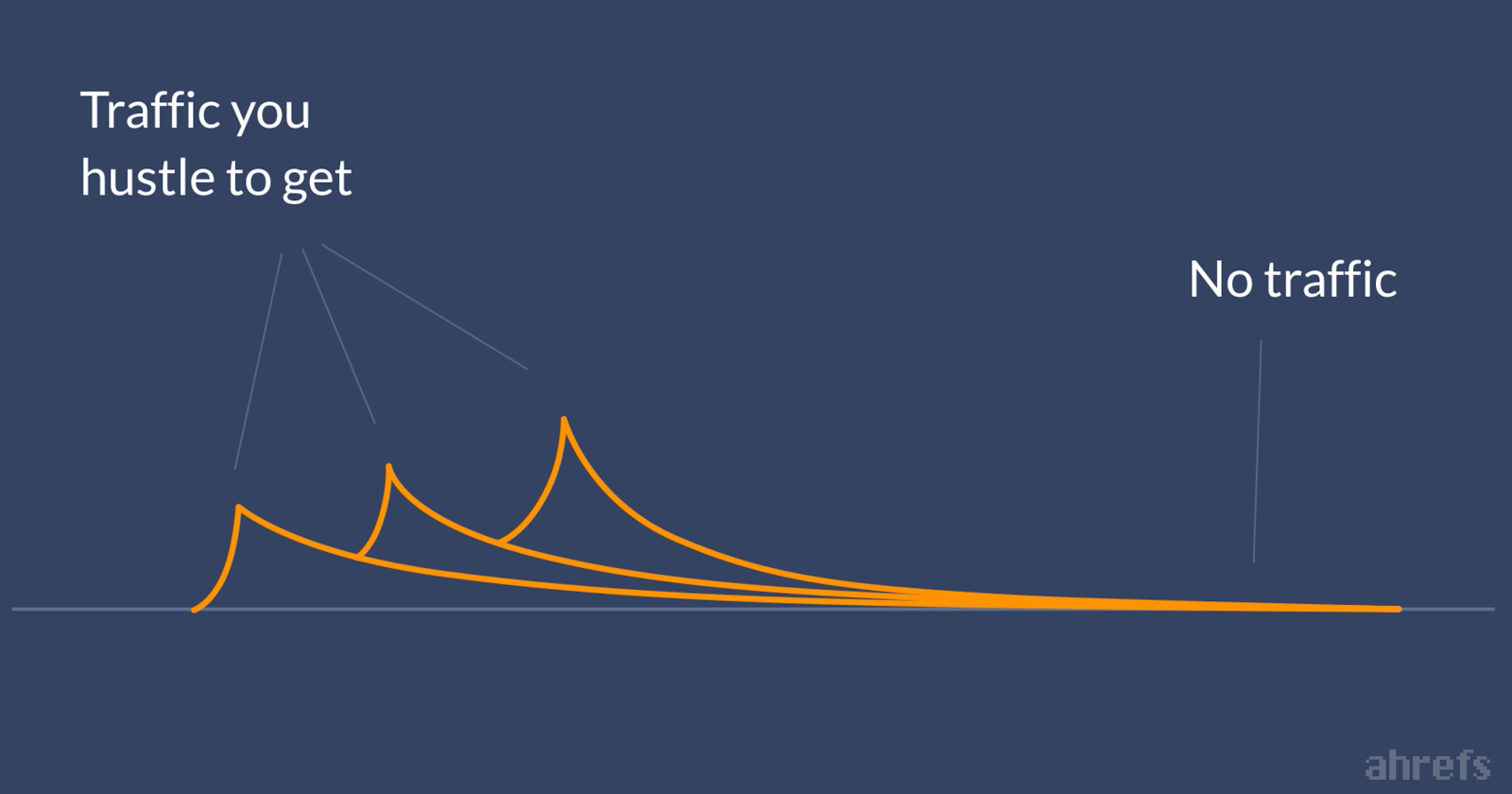
The reason for this is that most companies lack a sales strategy. You just publish and pray. To avoid this mistake, you need a way to drive consistent traffic to your blog posts. And since 57.8% of all web traffic comes from Google, we argue that there is no better way than writing for SEO.
How you do that?
The easiest thing to do is to search for topics that people are looking for and where there are opportunities to write blog posts that will promote your business. For example, if we put some business-related topics in Ahrefs’ Keywords Explorer and the Appropriate terms We report thousands of keyword ideas.

If we look at the results for any of these keywords, you can see that our list of free keyword research tools ranks number 3. Since it ranks well for a few thousand keywords, it receives an estimated 6,700 organic visits per month.
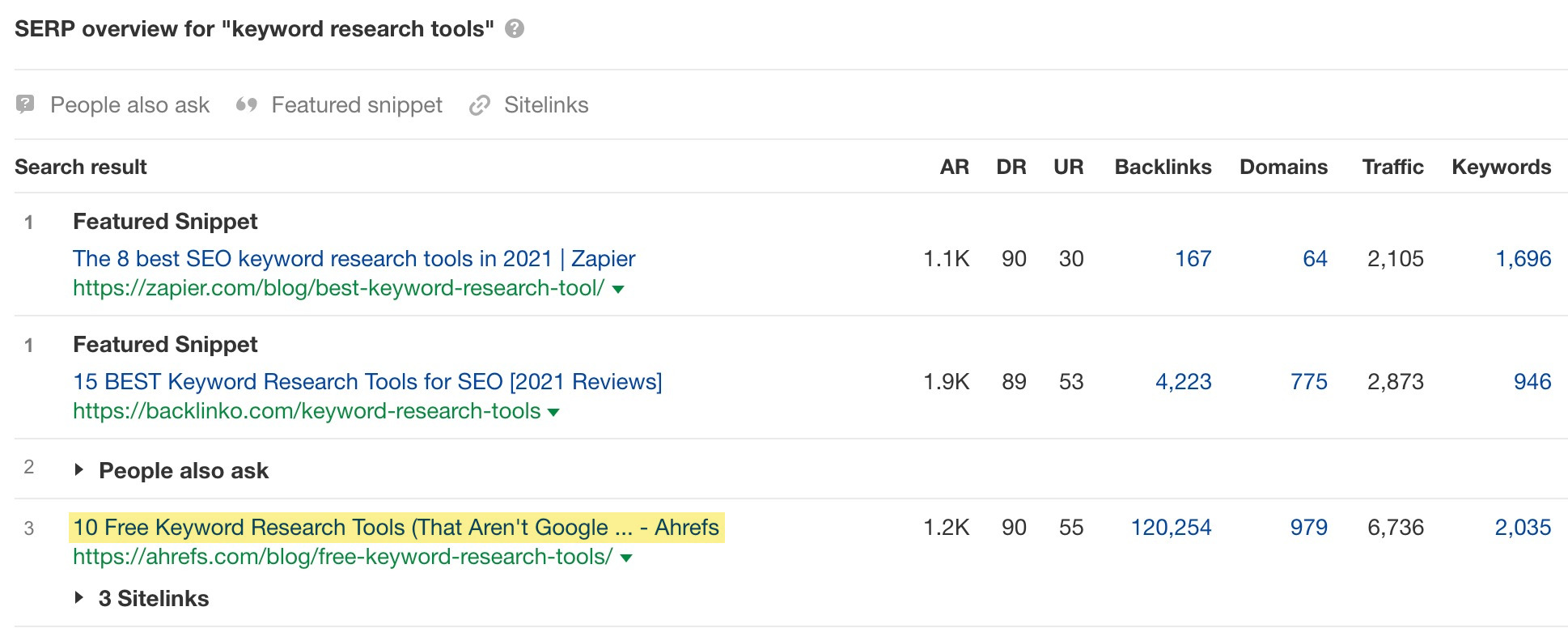
If you take a look at the blog post for yourself, you can see that one of the recommended tools is our free keyword generator. In other words, our blog post promotes our business to each and every one of its thousands of monthly readers.

Video marketing for YouTube
With over 2 billion registered users per month, YouTube has an existing audience that you can target while creating videos. However, there is a lot of competition and your videos have yet to be promoted and discovered.
How you do that?
As with blogging for SEO, the easiest way is to find topics that people are looking for on YouTube that will also allow you to naturally promote your product. To find these topics, enter some keywords relevant to your niche into Ahrefs’ Keyword Explorer, set it to “YouTube” and check those out Appropriate terms Report.
You’ll see hundreds of potential keyword ideas.

This is how we set up our YouTube channel. Our main focus was initially on achieving a good ranking for keywords that are relevant to our business. For example, if we look at the topic of keyword research, you can see that we are ranked number 1 for this, generating thousands of views per month.
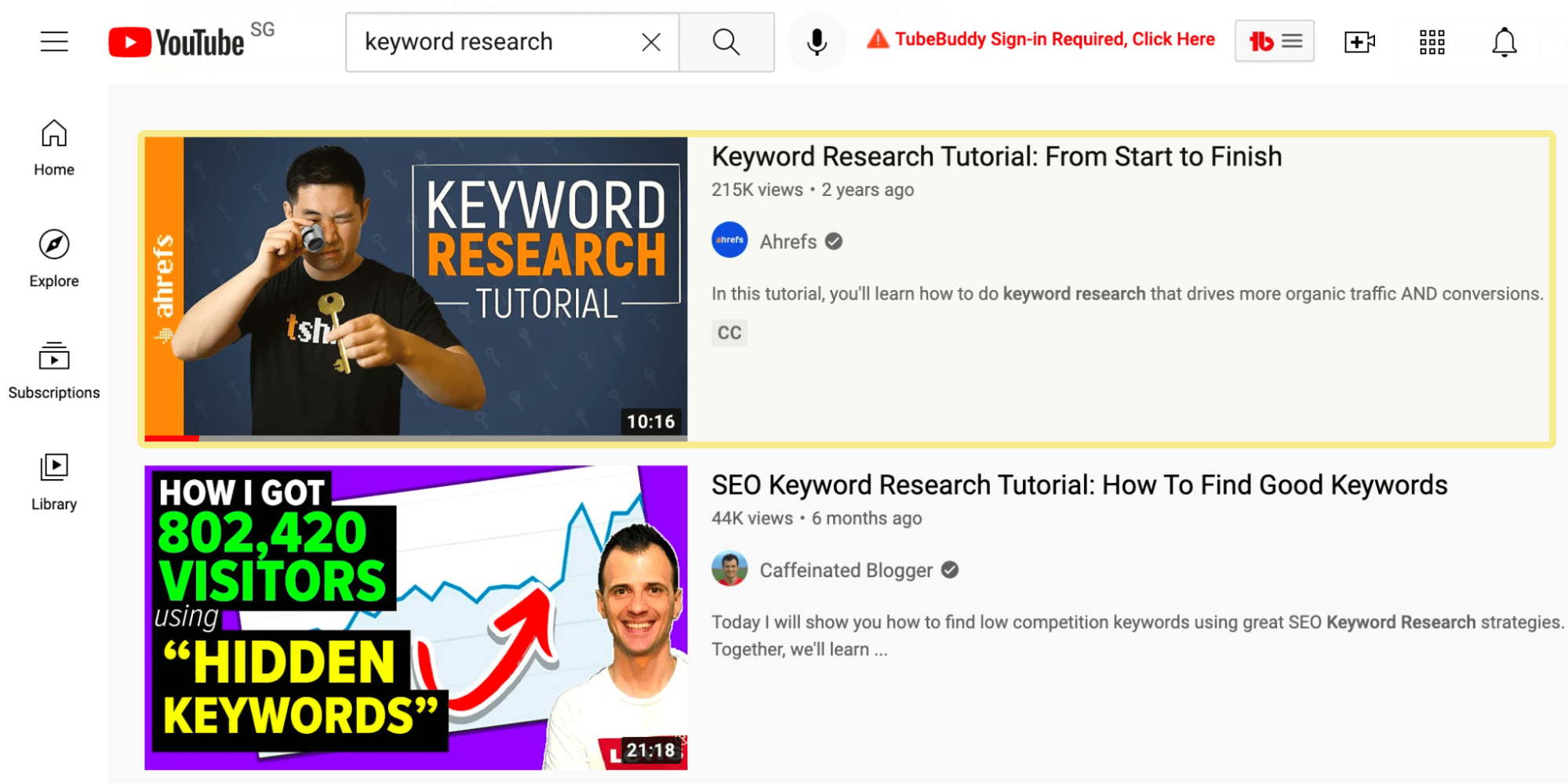
Our video also offers Keywords Explorer as the preferred keyword research tool to promote our business to thousands of YouTube viewers each month.
Brand awareness podcasting
Like blogging, podcasting is a great content type for building audience and promoting your brand. But most of the podcasts don’t arrive either and are given up a few months later.
And unlike YouTube, the current podcast discovery landscape is not ideal and can make it difficult to build momentum.
But there is an alternative way that we did ourselves: appearing as a guest on podcasts. It makes things easy. You don’t have to invest resources creating one that might not work, and you can tap into an existing audience too.
With over 2 million podcasts today, there are plenty of options for you to get interviewed.
But how do you find these possibilities?
One easy way is to simply search Google for the best podcasts in your niche.
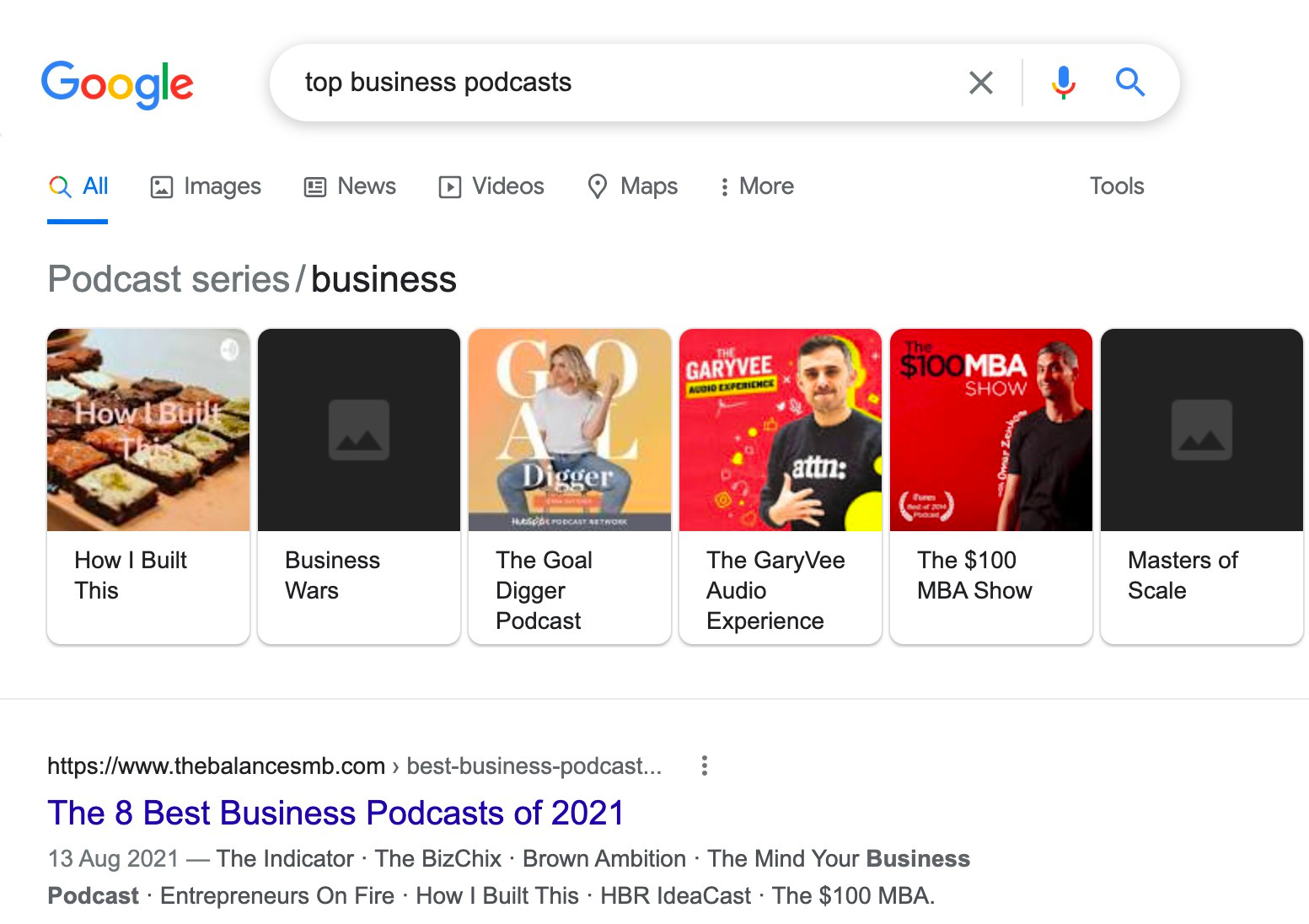
However, most of them will be popular and difficult for you to find. A better way is to identify someone of similar caliber in your industry who has been a guest on multiple podcasts. For example, Laura Roeder, the founder of MeetEdgar, is someone in our industry who has appeared on a lot of podcasts.
To discover the podcasts she has participated in, let’s add her site to Ahrefs’ Site Explorer Backlinks report, set the search drop-down menu to “Referring Page Title” and search for their name. Now the links in the “Referring Page” column are pretty much all podcasts.
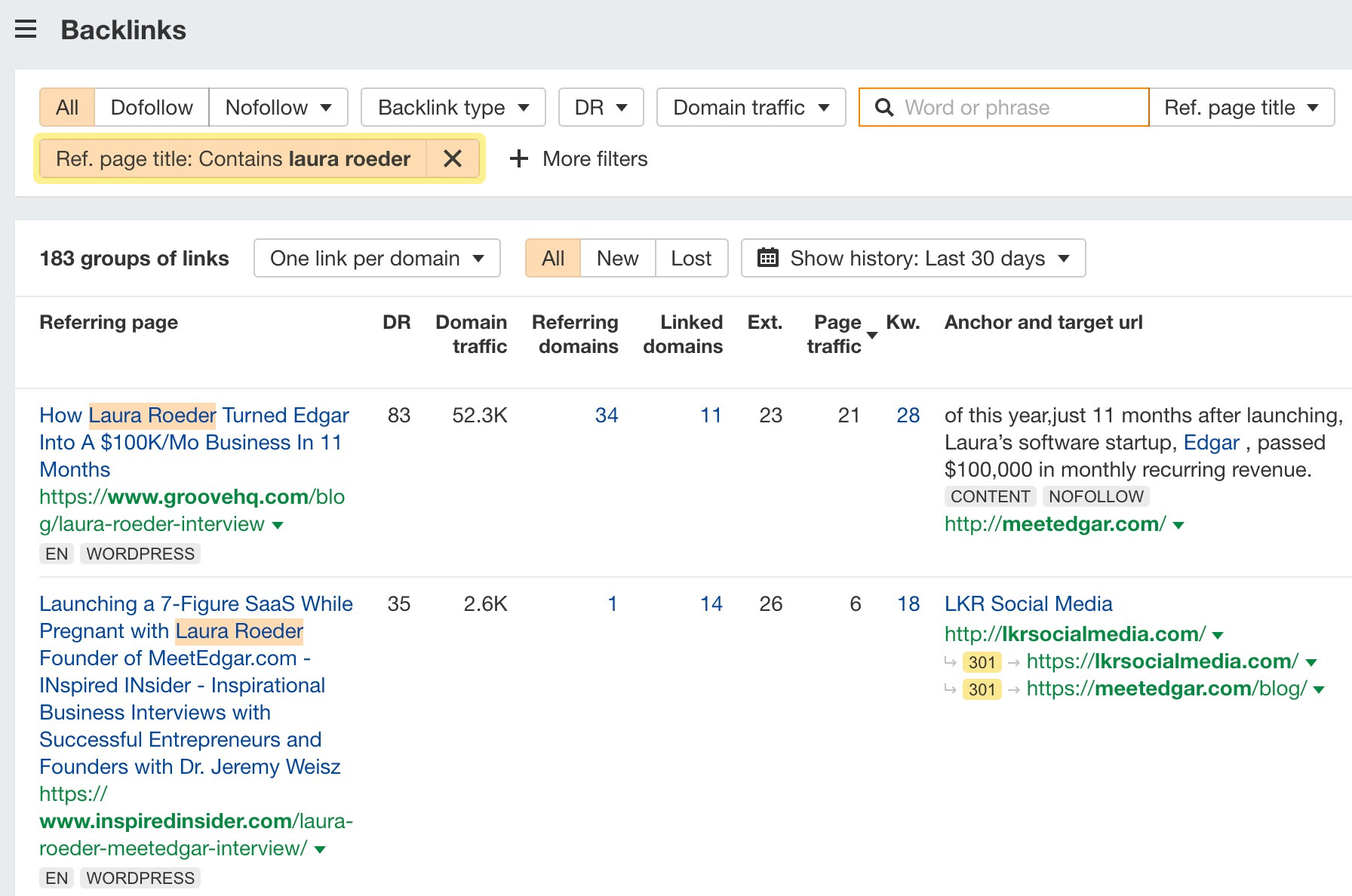
Once you’ve identified the podcasts you’d like to attend, introduce yourself as a guest.
Email marketing to nurture leads
Brian Dean receives over 500,000 monthly organic visits:

This audience is exposed to his blog by actively collecting contact information:
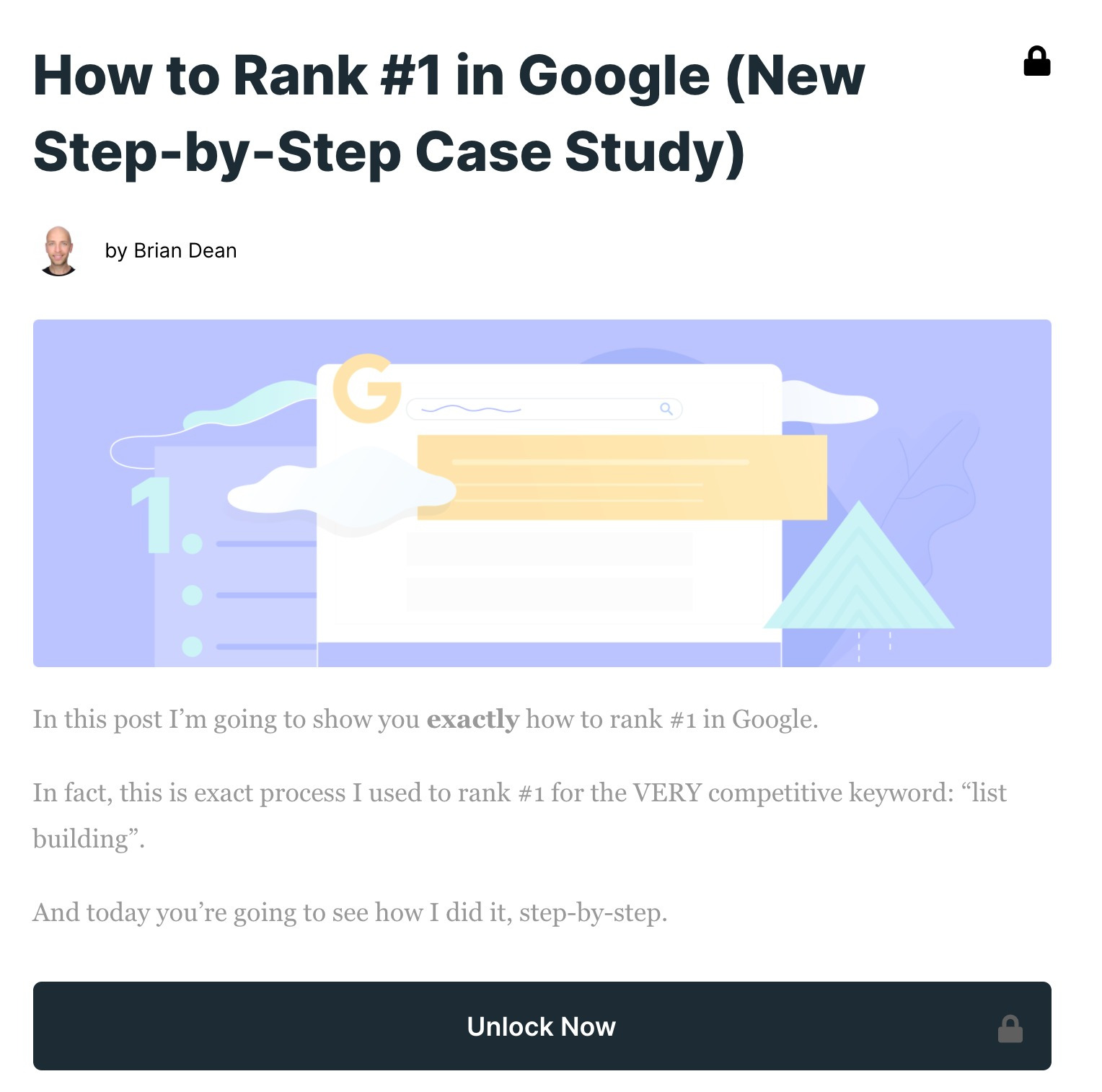
Whenever Brian publishes a new post, he adds it to his list:
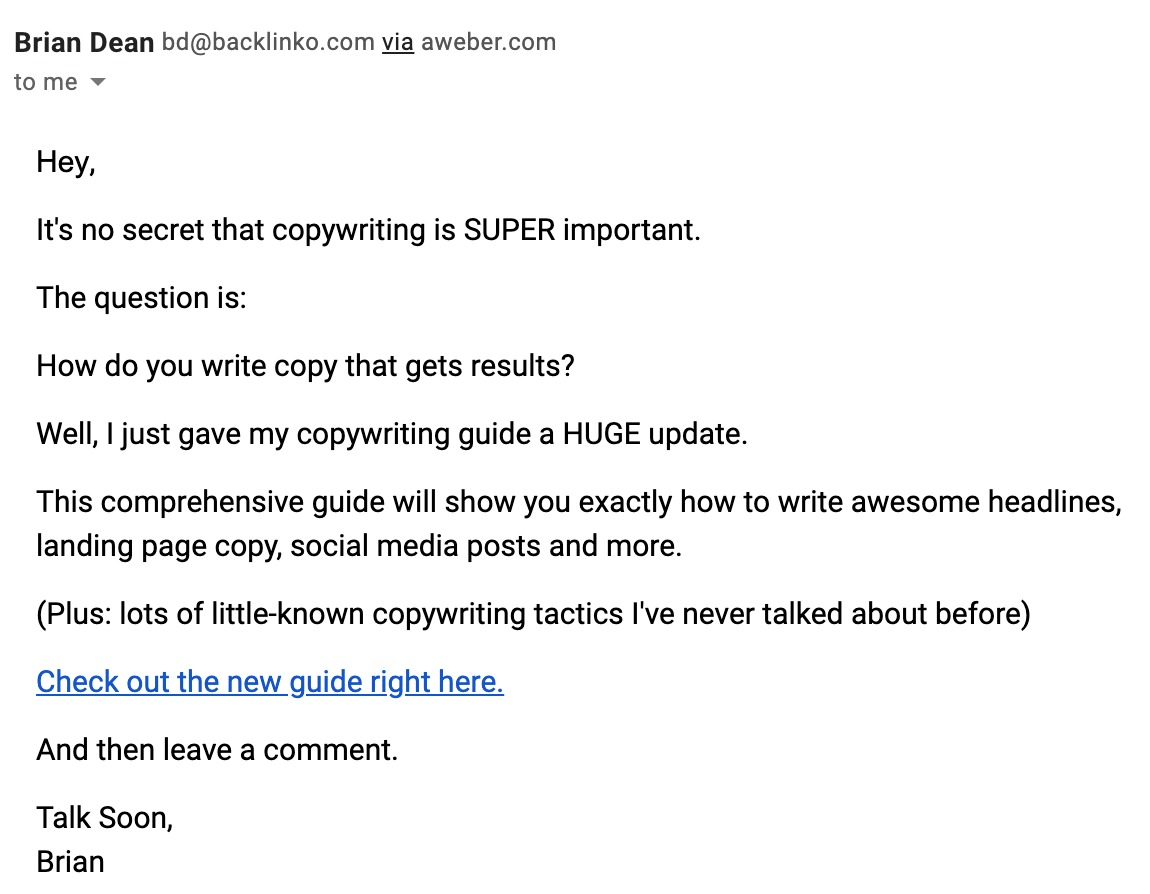
This works like a flywheel: email distributes blog content to an existing email list, while blogging builds the list by contacting new visitors and collecting their contact information.
That tiki-taka between email and blogging also helps cultivate your audience. It helps bring your audience closer to the “buy” phase in the early stages of the buyer’s journey, and it’s always centered around your brand.
Every now and then when Brian launches his online courses, shopping becomes a breeze as his audience already knows his work and name:
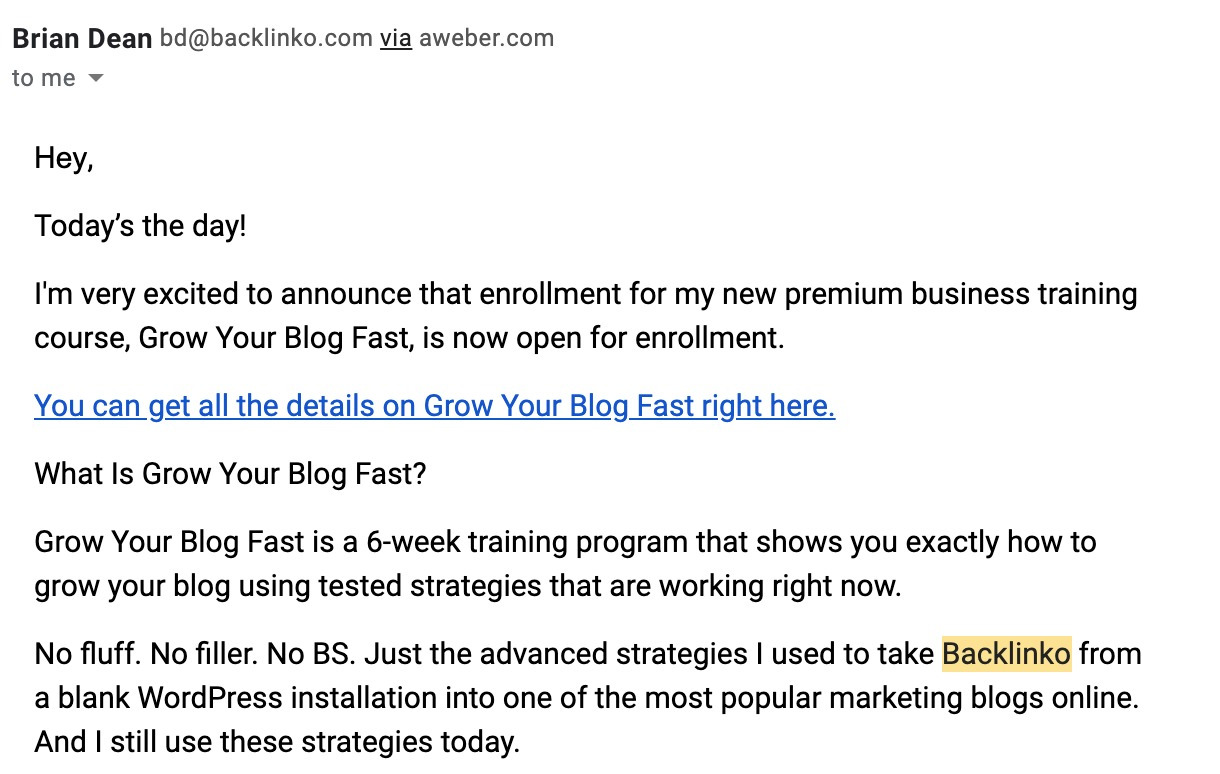
Social media marketing for brand building
Don’t expect to find success with any content on social media. To effectively promote your brand on social media, you need to understand what works on a given platform and publish content natively.
Brands like Innocent and Wendy’s do well on Twitter because they understand social media’s affinity for playful banter, strong opinions, and satire.
GoPro knows that Instagram is about beautiful pictures and influencer marketing. It successfully combines the two (and subtly advertises itself) by curating beautiful images and videos captured by customers who have used GoPro products.

It’s not about spamming your feed with links to your own products. Rather, it’s about actively interacting with people on social media.
How to choose the right type of content marketing for you
You have seen how the different types of content marketing actually work. But which one should you choose? Which ones will work for you?
Your choice will depend on your answers to these four questions.

What is right for your goal?
Ultimately, content marketing is just a tool that you use to achieve your goals. So the type of content marketing you choose in the end should match what you want to achieve.
For example, if your goal is to get more traffic to your website, then email marketing may not be the right type of content for that goal. You might want to blog so that you rank high on Google and receive passive traffic over time.
What’s Right For Your Niche?
Certain types of content make more sense for certain niches.
For example, if you’re teaching breakdancing, a podcast doesn’t make sense. Nobody is going to sit down and figure out how to take moves out of audio. But videos are perfect because your audience can see and learn how to make those movements.
What’s Right for Your Audience?
How do your audiences like to consume content? Do you mostly read or watch videos on YouTube? Which platforms do they spend most of their time on? Is it YouTube, TikTok, Instagram, Twitter or something else?
If you’re not sure, find out by checking out what your audience is sharing on social media or communities like Reddit. For example, there are hardly any B-boys or B-girls on Twitter. But they’re all over Instagram.
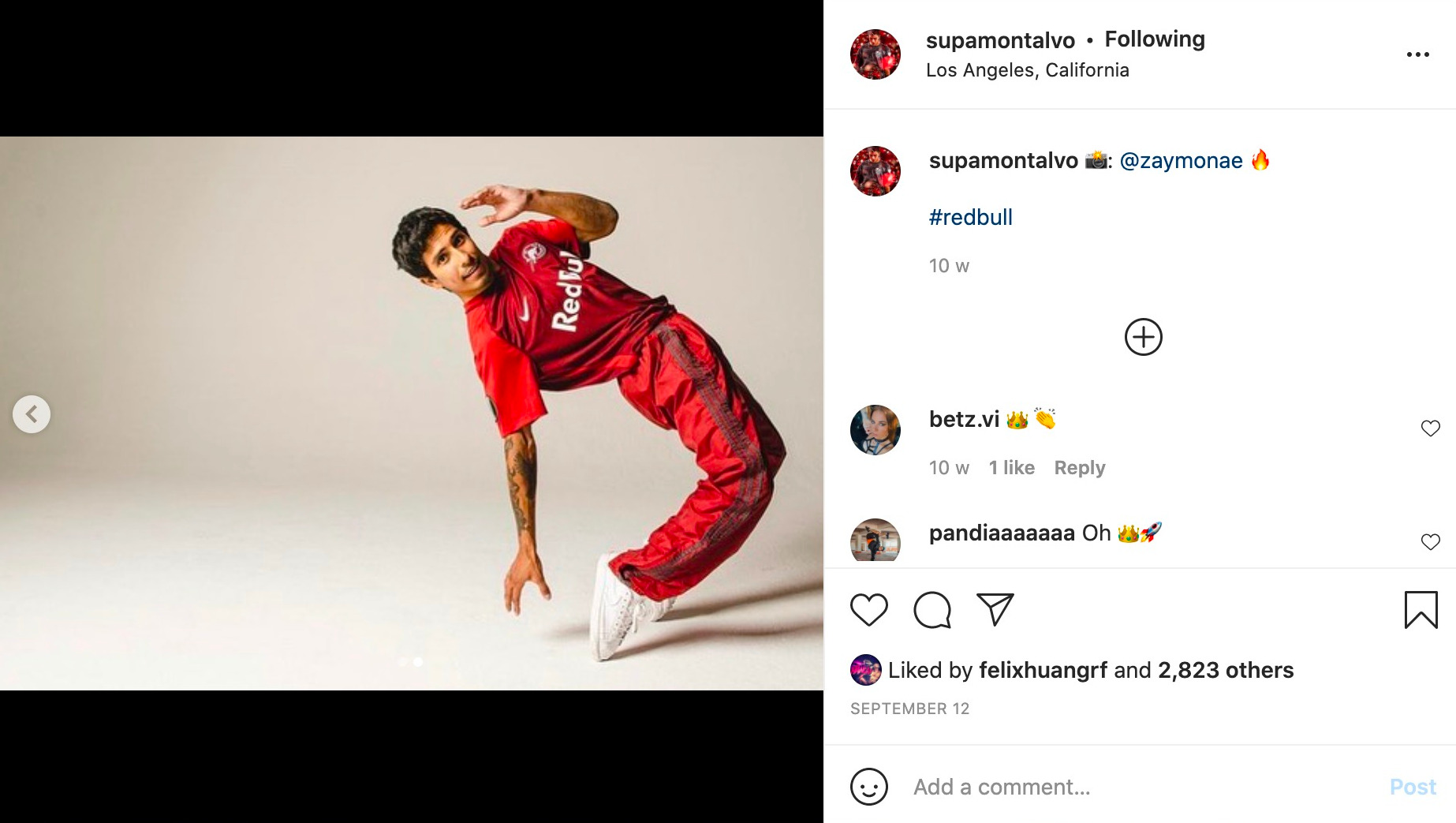
Which is right for you
Content marketing can be resource intensive. It makes a lot of sense to work on something that you enjoy and that is your strength.
If you are an excellent writer but are not very confident in front of the camera, making videos might not be a good idea. Blogging can be a better choice.
Final thoughts
Don’t be wrong. Content creation alone won’t work. There are many stories about abandoned blogs, YouTube channels, podcasts, and social media accounts.
In order for the type of content marketing you choose to work, you need to get more reach for your content and make sure that the content will help your business grow.
Do you have any questions or comments? let me know on twitter.
Follow us on Facebook | Twitter | YouTube
WPAP (907)
